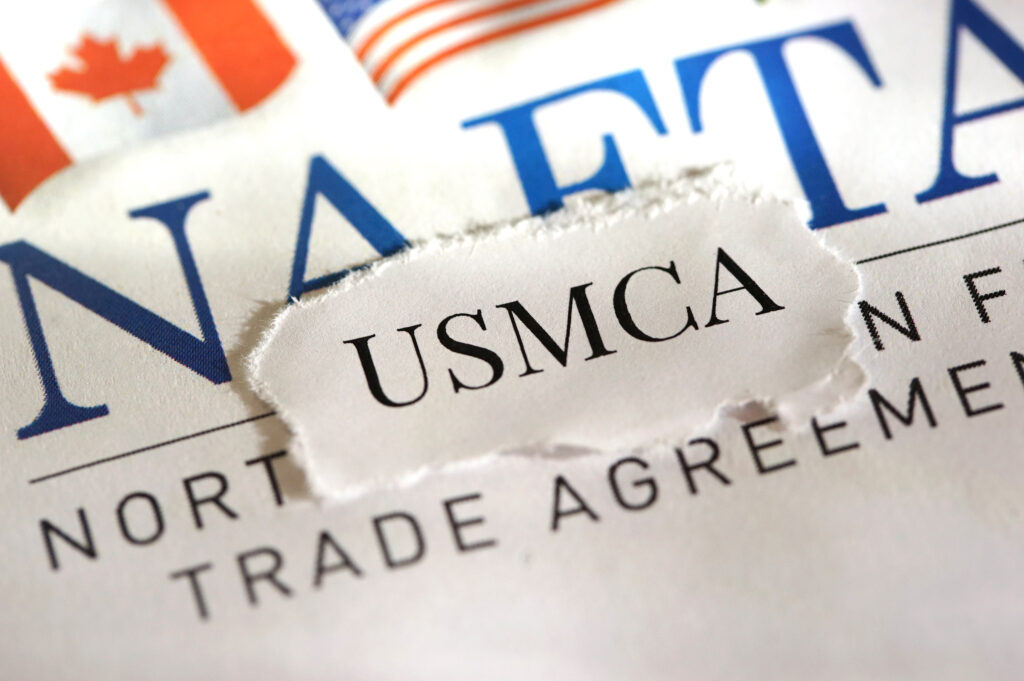Cross-border trade is a major economic engine along the U.S.-Mexico border region, with the Mexican maquiladora industry and the electronics sector playing pivotal roles in driving this exchange. The United States-Mexico-Canada Agreement (USMCA) has further reinforced the relationship between the U.S. and Mexico, promoting the growth of the electronics industry and enhancing economic opportunities in border states.
The USMCA has facilitated the import and export of electronics between both countries, significantly benefiting border states such as Arizona, New Mexico, Texas, and California. This growth is evident in the thriving electronics manufacturing hubs in cities like Nogales, Tucson, Santa Teresa, El Paso, McAllen, and the San Diego-Tijuana region, which are home to major companies like Benchmark Electronics, Universal Avionics, Foxconn, Schneider Electric, TT Electronics, Panasonic, Samsung, Sony, Jabil Circuit, Intel, and ON Semiconductor.
Arizona has emerged as a leading player in the electronics and technology manufacturing sectors, with its tech manufacturing posting the third-fastest growth rate in the nation in 2020. The state’s total manufacturing exports reached a record high of $24.7 billion in 2019. The semiconductor industry has seen significant investments, with Taiwan Semiconductor Manufacturing Company (TSMC) building a $12 billion fab in Phoenix, which will create 1,600 permanent high-tech jobs and support thousands of additional indirect jobs. This facility, along with Intel’s presence in the state, further solidifies Arizona’s position as a technology hub.
The USMCA encourages reshoring of manufacturing processes to make North America more self-sufficient, leading to discussions about increasing cross-border manufacturing in the electronics industry. As a result, companies are looking to shift their supply chains from China to the Americas due to the uncertainties caused by COVID-19, rising shipping costs, and geopolitical tensions. These conversations involve exploring ways to manufacture components in Mexico and the U.S. that are currently imported from other regions, reducing dependency on China and enhancing supply chain resilience.
Ciudad Juárez, a major manufacturing hub in Mexico, has experienced significant growth in the automotive and electrical products sectors, with major companies such as Bosch, Foxconn, Flextronics, Siemens, Sumitomo Electric Wiring Systems, and Yazaki operating in the city. Similarly, the McAllen/Reynosa International Metro region in Texas is home to a thriving automotive and aerospace industry, including companies like TI Automotive, Delphi Teck, Panasonic, General Electric Aviation, SpaceX, STMicroelectronics, and Sensata Technologies.
The USMCA has also had a positive impact on New Mexico, which exported $4.7 billion in goods to the world in 2019. The state is home to many leading technology manufacturing companies such as Honeywell, Raytheon, and General Dynamics, and USMCA provisions for duty-free access, market access, and intellectual property protection have been lauded by the technology sector.
In conclusion, the USMCA has strengthened the relationship between the U.S. and Mexico, particularly in the electronics and semiconductor industries. This agreement has led to increased cross-border trade and manufacturing, reshoring initiatives, and an overall boost to the economies of both countries. As a result, border states like Arizona, New Mexico, Texas, and California are experiencing significant growth and development in the electronics sector, creating new job opportunities and solidifying North America’s position as a global technology powerhouse. The reshoring trend from China to the Americas is further enhancing the growth of the electronics industry in the region, making it more resilient and self-sufficient.

